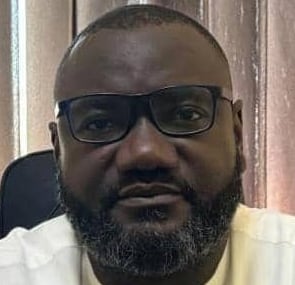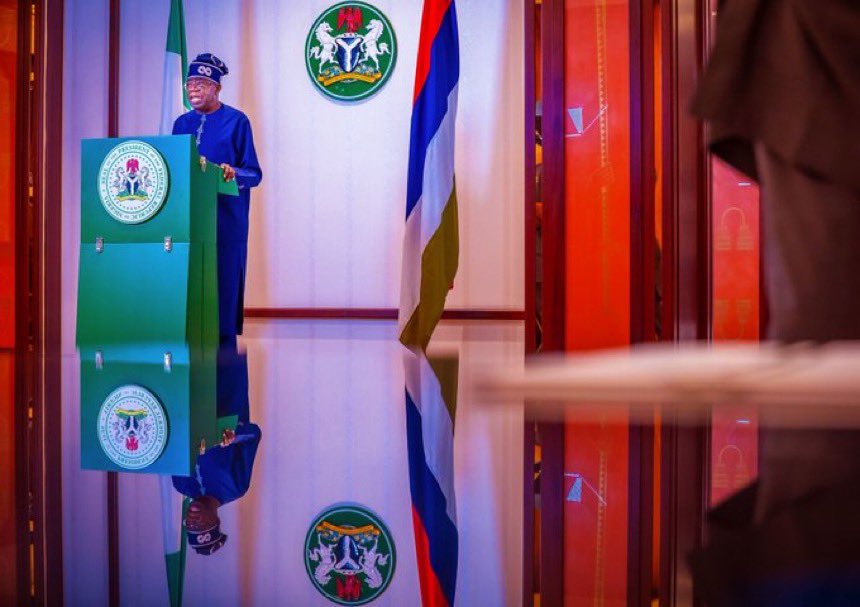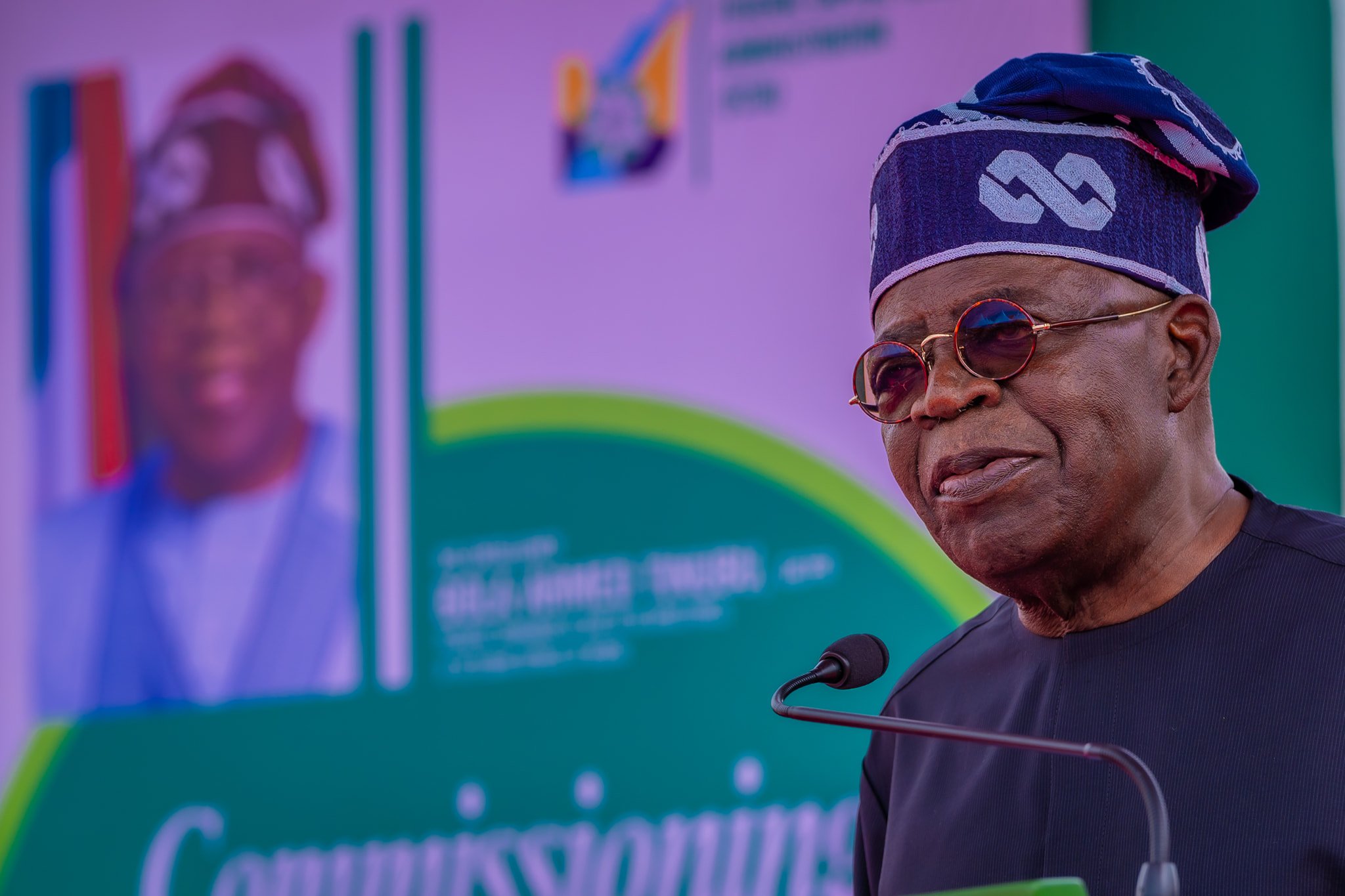Tinubu addressing Nigerians in a state broadcast
On Thursday, August 1, 2024, some Nigerians, mainly youths, trooped out to make demands on the government to make life meaningful. At some point, the protests were violent, and lives were lost, businesses looted, and public infrastructure destroyed. The level of destruction and disruption of socioeconomic activities varied. Some states were also peaceful and thus a case for different strokes for different folks. The sad part of the commentary is that the youths have refused to see the silver linings in the policies this administration has instituted in the past year. They have also declined to tap from these silver linings. Manna will never fall again. This much we must come to terms with. I read the transcript of the president’s speech in the aftermath of the protest, and some points got my attention. I will highlight them accordingly, and at the end of the day, the youths of Nigeria will reflect and retrace their stance on the government’s efforts in addressing the country’s challenges.
Point One: “We established the Consumer Credit Corporation with over N200 billion to help Nigerians acquire essential products without needing immediate cash payments, making life easier for millions of households.” The Nigerian Consumer Credit Corporation (CREDICORP) is a Development Finance Institution established to democratise access to consumer credit for Nigeria’s working population. How many have taken the time to understand the potential of the Consumer Credit Scheme, and how many have taken the initiative to benefit from it? The number of those who have identified the potential of this scheme is infinitesimal. How would they benefit from it if they don’t subscribe to it?
This has been a challenge. Laudable government policies are introduced, and the truth remains that participation has been low. With the involvement of the intended beneficiaries, there will be results. How, then, would the youths be empowered? It is a function of give and take. The government has played a role in establishing the consumer credit scheme to help citizens enjoy a quality of life well above current earnings by allowing access to goods and services without paying upfront. Unfortunately, those who are supposed to amplify this initiative in a language everyone can understand have not done that. I stand to be corrected.
Point Two: “We have introduced the Skill-Up Artisans Programme (SUPA), the Nigerian Youth Academy (NIYA), and the National Youth Talent Export Programme (NATEP).” This is a three-in-one package that factors the various segments of the youth population. For example, the Skill-Up Artisans Programme is a massive attempt at harnessing the potential of the blue-collar workforce in the country. It simply means jobs outside the formal sectors, like plumbers, welders, auto mechanics, bricklayers, masons, carpenters, painters, hair stylists, electricians, and others too numerous to mention. We must admit that the blue-collar workforce plays a pivotal role in driving various sectors of the economy. The Nigerian Youth Academy is about “Connecting Instructors to Learners and Creating Jobs”
Advertisement
It is akin to known platforms such as Coursera, SkillShare, Udemy, Domestika, and LinkedIn Learning that revolutionised the way people learn by simply connecting teachers with students, universities with students, instructors with learners. Therefore, establishing the Nigerian Youth Academy (NiYA), an Online and Mobile learning ecosystem that connects subject matter experts, instructors, professors, tertiary institutions of learning, organisations, and professional bodies with Nigerian Youths anywhere in the world, is a masterstroke. Again, how many have utilised this platform? Is there another opportunity for youths to acquire skills?
The National Youth Talent Export Programme is an initiative that seeks to position Nigeria as an export hub for talent outsourcing in Africa and around the world. The overarching objective is to showcase Nigeria as a powerhouse of high-quality talent for the global service export and outsourcing industry. How many youths have keyed into this initiative? There is also the Digital and Creative Enterprises Program (iDICE) aimed at promoting investment in digital and creative industries in the country as part of efforts to create more sustainable jobs for its youthful population. How does this work? It is a $617.7 million program that targets Nigerians aged 15 to 35 years who are involved in innovative, early-stage, technology-enabled start-ups or creative sector micro, small and medium-sized enterprises by equipping youth with tech and creative skills while building a community of developers, software engineers, designers and thought leaders.
These initiatives are explicitly targeted to the teeming youthful population in Nigeria. In a previous article I authored, Youth o’clock, Tinubu Might be Playing a Game,” I analysed the number of young persons holding cabinet positions in the country and how it might be a strategy towards getting youths involved in governance. I advocated that the president lay a pathway for young people to take over the reins of government. But the onus lies in the hands of the youths, who must monitor the president’s strategy closely. This remains my position given the highlighted initiatives that are youth-specific. The president has created a platform for the youth to utilise. He can’t then go ahead to spoon-feed. This is an entitlement mentality, and it won’t work in Nigeria or any part of the world. Instead of protesting, why not get involved?
Advertisement
I recently had a chat with a friend who was vehemently supporting the protest. I asked him why he didn’t join the protesters. His excuse was that he was busy with work. I also asked about the composition of those protesting on the street. He said they were street urchins and thugs. I was quick to correct him. They are not street urchins and thugs; they are the victims of ignorance. Those bereft of ideas and initiatives and those who still believe manna will fall from heaven. In the prevailing circumstance, it is now a function of choice for the youths. The mediums have been established to assist in translating hopes and aspirations into tangible realities. There are two options: maximise these opportunities to make life meaningful or join those bereft of ideas and initiatives. Everything comes back to us—my two cents.
Ocheja, a military historian and doctoral researcher, is an alumnus of the Nigerian Defence Academy.
Views expressed by contributors are strictly personal and not of TheCable.
Add a comment










